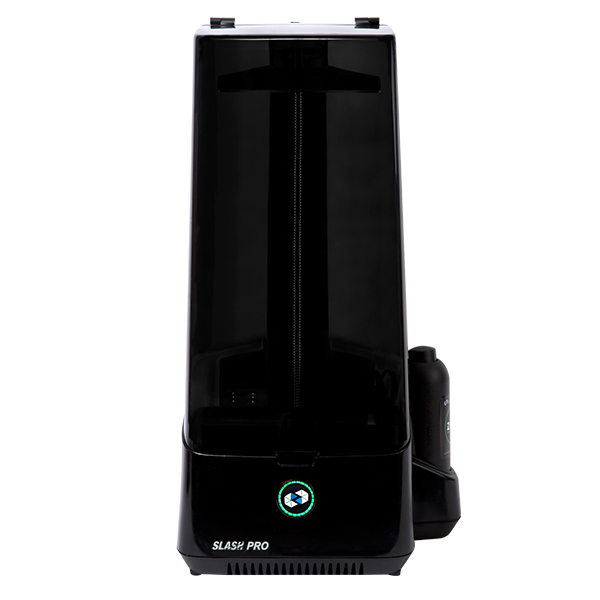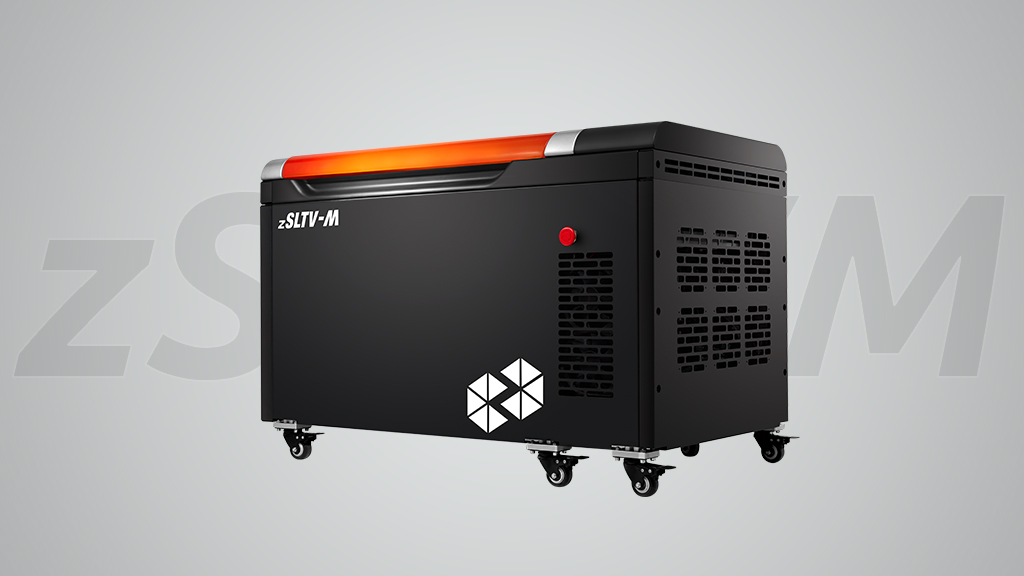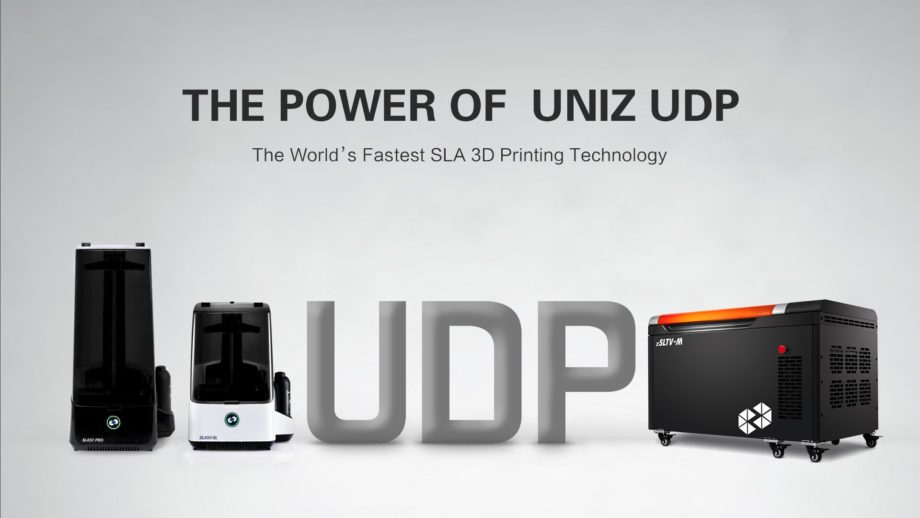California based company UNIZ returns to Kickstarter to launch a series of 3D printers: SLASH +/OL/Pro and zSLTV-Mini; an announcement which follows the release of its 5 3D printers using UDP technology.
The SLASH OL and SLTV Series 3D printers are designed for hobbyists, prosumers and professionals.
3D printers for mass consumption
The SLASH OL is a desktop 3D printer capable of reaching printing speeds of 1000 cc/hr. It is 3D printer whose XY resolution is software limited to 150um. It is the ideal solution for consumers in the sub $1000 FDM market, who are not satisfied with the FDM’s printing quality, slow speed, and low reliability.
The Slash + minimizes the peel time of conventional layered SLA process, and achieving an astonishing printing speed of 640mm/hr in z-axis build speed (14800cc/hr build envelope speed), for example, a 10cm long hexagonal mesh model can be printed in less than 9minutes. This new technology is capable of challenging conventional injection molding technology in production speed and quality, and this approach to 3D printing makes it easier and faster than ever for professionals and enthusiasts to dream, design and create.

SLASH PRO is the PRO version of SLASH which has doubled z-axis build envelope. It is capable of outputting a full size adult shoe-sole in less than 40 mins. This is a perfect solution for professionals who needed the extended build envelope in a desktop setup.

3D printers for industrial manufacturing
The zSLTV-M models — The SLTV15 uses the same revolutionary LCD photo curing 3D process as the SLASH and equipped with UDP. This system has 89um XY resolution, 3x build area (330x190mm XY), 8x the build envelope (410mm Z) compared to SLASH, and a blistering fast printing speed of up to 2,800 cc/hr solid output speed and 24000cc/hr build envelope speed. For example, 20 full-arch dental models can be printed in less than 5 mins.

For further information about 3D Printing, follow us on our social networks and subscribe to our newsletter!
//pagead2.googlesyndication.com/pagead/js/adsbygoogle.js
(adsbygoogle = window.adsbygoogle || []).push({});






